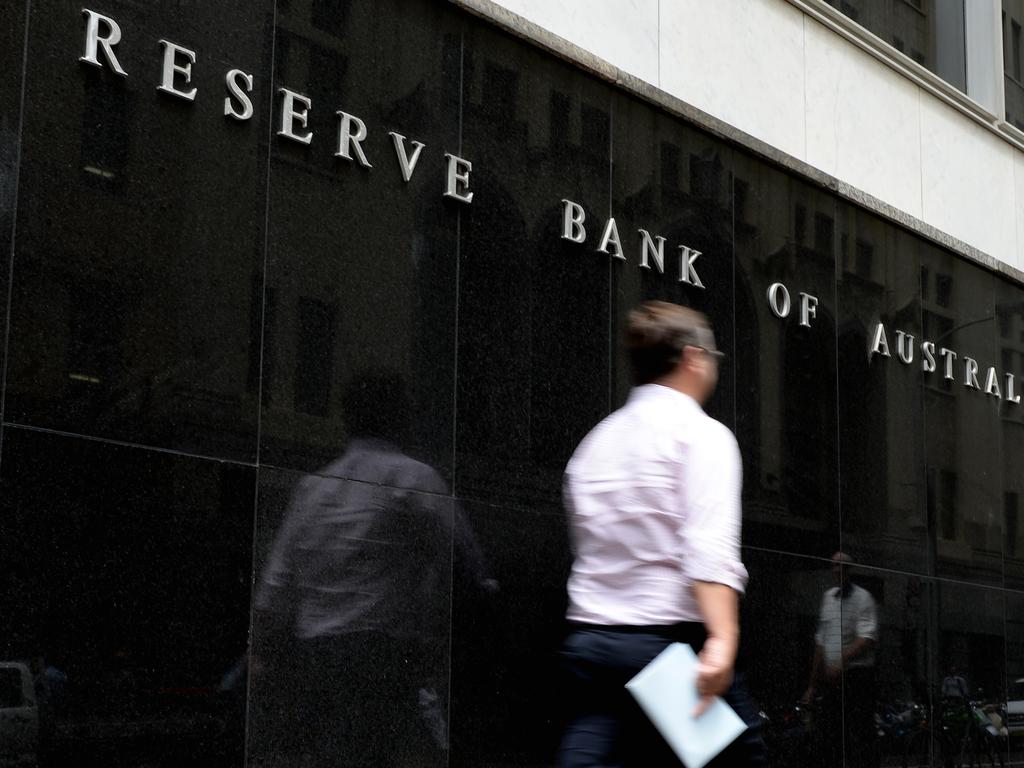Reserve Bank keeps interest rates on hold at 3.6pc in April, but says more hikes may be needed
An unprecedented run of 10 consecutive interest rate hikes has come to an end after the RBA opted to leave rates at 3.6pc, but warned further moves could be needed.
An unprecedented run of 10 consecutive interest rate hikes has come to an end after the Reserve Bank opted to leave rates on hold, but warned that further increases may still be needed.
The decision to leave the official cash rate at 3.6 per cent followed a series of weaker than expected economic data including a larger than expected decline in CPI and amid the fallout of several banking collapses overseas.
Economists at the major banks were evenly split as to which way the RBA would move with Commonwealth Bank and Westpac backing a pause, while NAB and ANZ expected a 25 basis point increase.
The pause ends the most aggressive rate rising cycle in Australian history with 10 consecutive rate hikes and 350 basis points of increases since May 2022. Borrowers with the average $750,000 loan have seen their repayments rise by $1474 a month in the past year, while a $500,000 mortgage has increase by nearly $1000 and close to $2000 on a $1m loan, according to RateCity.com.au.
RBA governor Philip Lowe said in his post meeting statement that the board recognised that monetary policy operated with a lag and that the full effect of this substantial increase in interest rates is yet to be felt.
The Board took the decision to hold interest rates steady this month to provide additional time to assess the impact of the increase in interest rates to date and the economic outlook,” he said.
Dr Lowe also warned that the RBA expected that “some further tightening of monetary policy may well be needed” to ensure that inflation returned to its target band of 2-3 per cent.
“The decision to hold interest rates steady this month provides the Board with more time to assess the state of the economy and the outlook, in an environment of considerable uncertainty,” he said.
“In assessing when and how much further interest rates need to increase, the Board will be paying close attention to developments in the global economy, trends in household spending and the outlook for inflation and the labour market.”
Despite backing a pause this month, Westpac chief economist Bill Evans said that a 25bp increase to a peak cash rate of 3.85 per cent was likely in May.
Commonwealth Bank head of Australian economics Gareth Aird said a further watering down in messaging around its foreword guidance hinted that the RBA less convinced that it would need to hike again.
“These changes indicate that the RBA Board is less convinced that they will hike the cash rate again. To be clear, the Board has still retained a hiking bias, as we anticipated. But it is a more watered down version of the previous statement,” he said.
PropTrack senior economist Eleanor Creagh said the pause would see property prices, which rose 0.13 per cent nationally in March, continue to stabilise as some of the uncertainty buyers have experienced with borrowing capacities reduces.
“The impact of interest rate rises is being counterbalanced by the strong rebound in immigration, and tight rental markets, which combined with the limited stock on market are underpinning home prices,” she said.
“If stock levels remain constrained, the bounce is likely to continue to firm.”

CreditorWatch chief economist Anneke Thompson said the pause would buy the RBA one more month to assess incoming data before inflicting any more pain on Australian borrowers.
“Overseas, European and US central banks continue to increase interest rates to fight inflation despite pressures in the banking sector in their jurisdictions. The Australian economy is particularly sensitive to interest rate rises, more so than the US or Europe, due to the volume of borrowers on or soon moving to variable interest rates,” she said.
It comes as ABS reported on Monday that value of refinanced home loans has hit a new record high, as borrowers take action to mitigate rising interest rates. Lending indicator data showed a whopping $19.87bn worth of mortgages were refinanced in February — the highest monthly amount in Australian history.
A total of $185.4bn worth of loans have now been refinanced since the start of the RBA’s hikes in May 2022.
Savers will no doubt be disappointed with a rate pause as financial comparison group Mozo reported that saving rates had reached a ten year high. It said that the last time bonus saving interest rates were above 5 per cent was in February 2013.






To join the conversation, please log in. Don't have an account? Register
Join the conversation, you are commenting as Logout